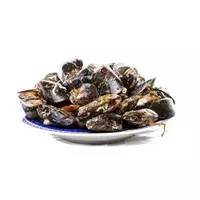Mollusks

Mollusks or soft-bodied are a type of animal that is released by spiral crushing. Currently, science knows over two hundred thousand different species of mollusks. It is noteworthy that such a species of animals as mollusks were able to master almost all habitats on planet Earth. Mollusks live in both marine and fresh water.
Mollusk species
It is worth noting that not only the appearance, but also the lifestyle of the animal depends on the type of mollusk. The following main species of mollusks are distinguished:
chiton mollusks or underwater deep-sea animals that feed on algae or other inhabitants of the deep sea are common in the waters of the Pacific Ocean;
gastropods are considered the most numerous animal species, which are divided into winged and kilenogi;
bivalve mollusks are distinguished by a sedentary lifestyle, this species includes bissus, scallops and dates, as well as folad and food holoturia;
cephalopods in the vast majority of cases belong to predators, this species includes cuttlefish, squid, plankton, octopuses and others.
It is also noteworthy that mollusks are different in size. Adults of the smallest mollusks reach only 0. 5 mm in length. However, there are really giant species of mollusks that reach 1
6. 5 meters. As a rule, mollusks belong to free-living organisms, however, parasites are also found that attach to other inhabitants of the deep sea.
Composition of mollusks
It is worth noting that many species of mollusks were on the verge of extinction due to direct human activity, as well as industrial extraction of the species. The chemical composition of mollusks depends on the species, habitat, as well as the lifestyle of the animal. However, it is worth emphasizing that the chemical composition of mollusks, however, as well as other inhabitants of the deep sea consumed by humans, includes a fairly large number of essential useful compounds of natural origin.
The distinctive taste, as well as the beneficial properties of mollusks, as well as biological parameters, depend on the subspecies of the animal. Since ancient times, people have actively and widely applied the unique properties of mollusks in various fields. Many varieties of shellfish are consumed by humans and also used in the food production process.
In addition, shellfish play an important role not only in the food industry, but also in the pharmacological, medical, production and cosmetic industries. However, despite all the distinctive beneficial properties, there is also harm to mollusks for humans.
Shellfish harms
Shellfish can be harmed as agricultural pests, as well as poisonous animal species. Some molluscs can cause fatal harm to the human body thanks to the special chemical composition of toxic poisons that the animal's body is equipped with for self-defense or attack.
clams 77 kCal
Energy value of shellfish (Ratio of proteins, fats, carbohydrates - ju):
Proteins: 16.7 (~ 67 kCal)
Fats: 1.1 g (~ 10 kCal)
Carbohydrates: 0 g (~ 0 kCal)
Energy ratio (b | y): 87% | 13% | 0%
 Español
Español Français
Français Português
Português Русский
Русский 简体中文
简体中文 繁體中文
繁體中文 日本語
日本語 한국어
한국어 العربية
العربية Türkçe
Türkçe Қазақ
Қазақ Deutsch
Deutsch Italiano
Italiano Українська
Українська
